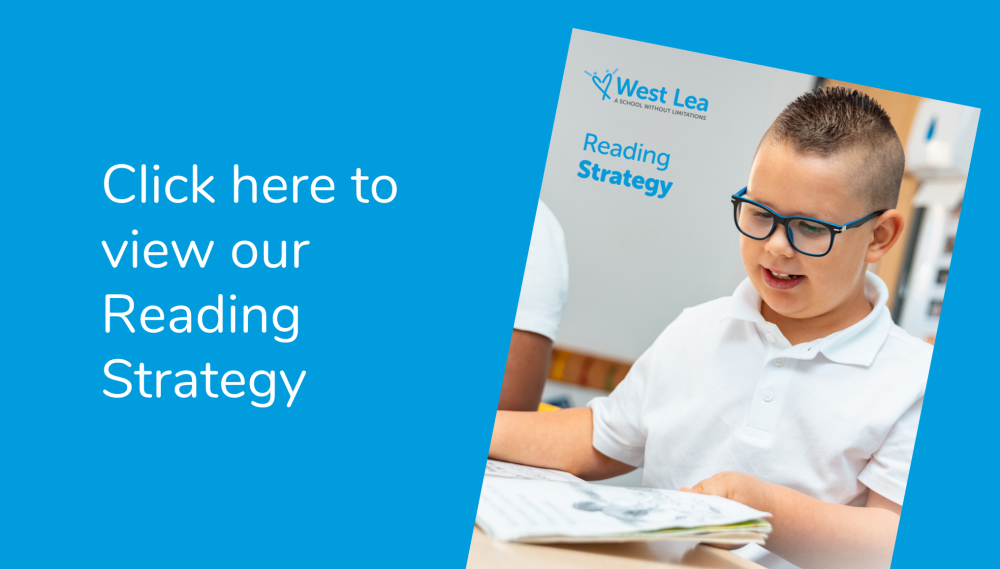Our Reading Strategy
Reading at West Lea School - how it is developed
Reading is an adventure for imagination, a lexicon for language and a workout for the brain. It provides new information, ideas and experiences while transporting children to exciting places where they can meet old and new friends, explore different worlds and share common experiences.
Whether children are reading independently, with an adult in school or with family at home, reading should be a purposeful and pleasurable activity that is embraced with enthusiasm, confidence and competence.
Solid reading foundations: phonics
Learning to read can be a complicated skill to master. Some children pick it up without hesitation, while for others it can be more challenging but laying firm foundations can make all the difference.
At West Lea, children are introduced to phonics in dedicated sessions across reception and year one. This also applies to those children in Key Stages 2, 3 and 4 who find decoding words on a page tricky. While the systematic progress through the phonics programme remains the same, books will be allocated based on age. Children will learn connections between sounds (phonemes) and written letters (graphemes), using the Little Wandle Letters and Sounds is the Systemic Synthetic Phonics scheme approved by the DFE.
Pupils will focus on recognising the sounds of letters and decoding single syllables followed by multi syllables and strings of words. They will also be introduced to frequently used words that don’t follow the spelling and pronunciation rules to help them understand the differences. Over time, children will learn to sound out more letter combinations and the process will become increasingly unconscious and automatic.
The books in other school lessons will match (as much as possible) the level of phonic knowledge of the individual so that they don’t feel overwhelmed by more complicated language.
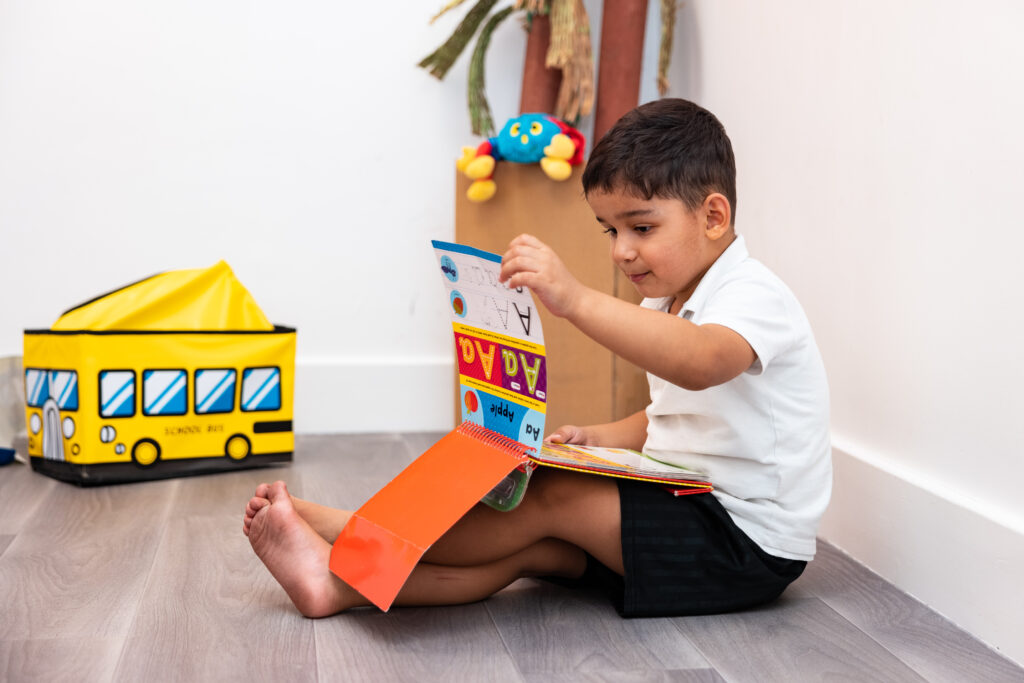
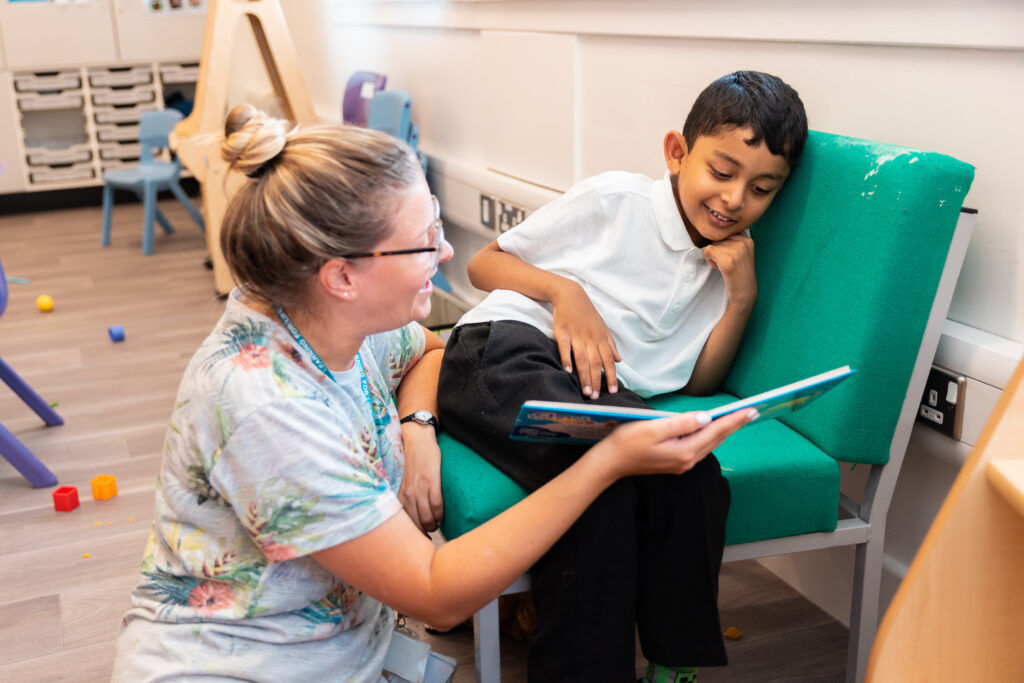

Embedding reading confidence and building comprehension skills
Once children have developed a level of phonic awareness, they will be introduced to a range of texts that build on this confidence and introduce reading for meaning and pleasure. The scheme used by West Lea is Big Cats, which helps develop readers at Key Stage 2 and 3. Teachers use these books to help children transition from phonics to ‘real’ books that are rich in language with ideas that match individual interests and enthusiasms.
If pupils bring Big Cats books home, parents can make use of the handy hints to develop their child’s reading further, or can refer to the online version using a login supplied by the teacher.
For those children who don’t get along with phonics, teachers will introduce a different approach and work with parents and carers to make sure the right strategies are reinforced in all reading situations.
‘Guided reading’
At all Key Stages, pupils will learn how to make sense of texts through structured ‘guided reading’.
Alongside Big Cats, Key Stage 2 teachers will choose class readers to study in English and reading lessons as well as other subjects. Those in Key Stage 3 will also be encouraged to make use of Big Cats in the instances where they need more time to embed phonic awareness.
At Key Stages 4 and 5, young people follow an accredited course including examination specifications on what reading skills need to be taught. A range of fiction and non-fiction will be used to enrich the curriculum and match reading confidence, while reflecting the maturing interests and world views of the young people.
Regardless of age, pupils will learn about different ways of reading across multiple mediums. They will enjoy stories, poems and plays, letters, newspapers, articles and essays, textbooks reports, and instructions. A structured reading activity will take place every lesson to help children build the skills to become confident in understanding different types of texts and levels of challenge.
Individual and independent reading for pleasure and personal information
We want children to be independent, not just in their ability to read but in their enthusiasm for choosing books and appropriate online material that interests and excites them. This eagerness for independent reading should be present both in school and at home when reading alone or with parents, carers or family and friends.
Across all sites, reading for pleasure will be promoted in lessons and at lunch and break times. Books will be available for children to borrow, as well as encouraging them to bring them in from home or from the local library.
In reception and at Key Stages 1, 2 and 3, classrooms include book corners and library shelves and teachers will hand select books that present the right level of challenge and interest for pupils. Children will be encouraged to browse and choose independently but with guidance from adults where necessary.
At Key Stage 4, young people and adults will be encouraged to partake in Drop Everything and Read – an initiative which aims to promote reading as a valued activity. Young people will likely see the Head of School with a Harry Potter book in her hands, the dinner supervisor with Gary Lineker’s autobiography and the maths teacher enjoying a newspaper review of the latest James Bond film.
At Key Stage 5, young people can enjoy a more varied choice of materials including newspapers, articles or short texts in the newly revamped Star Books café.

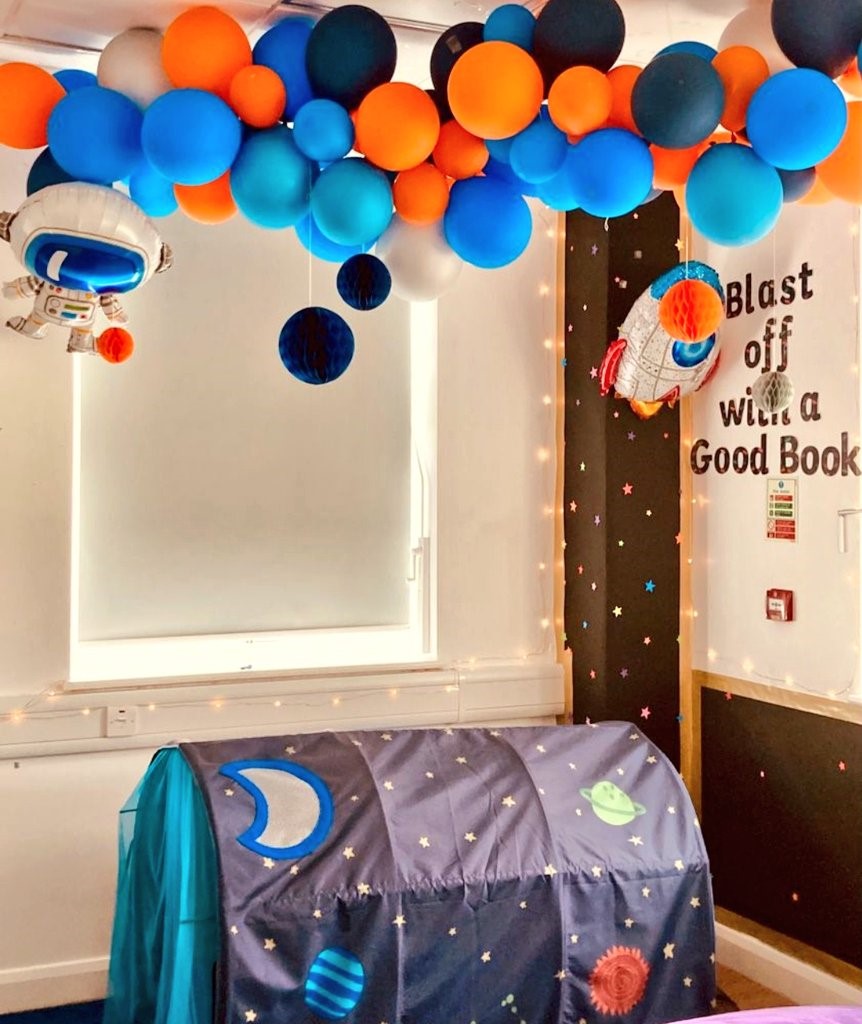
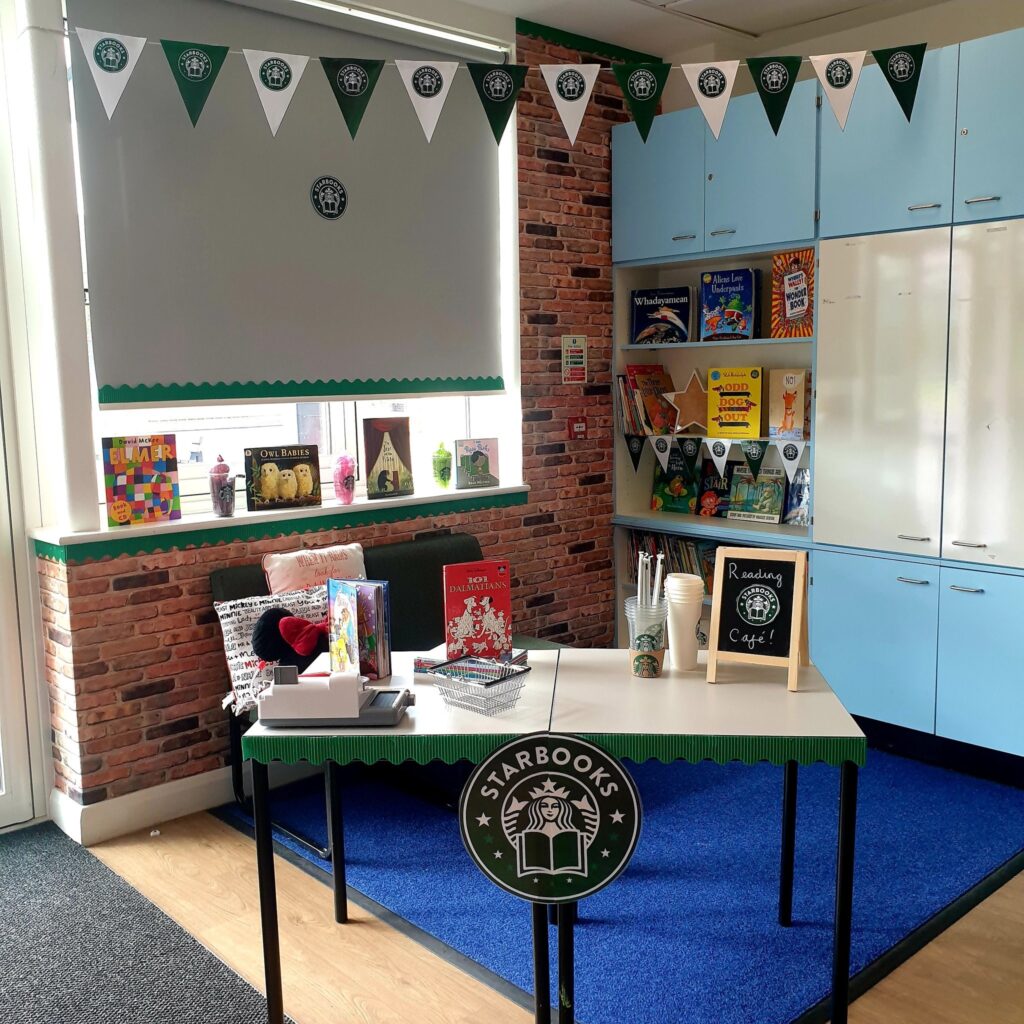
Reading at home
West Lea cannot instil a love of reading without the help of our wonderful parents and carers. Research shows that children who read with a parent or carer make significantly more progress in all their learning than those who do not read at home. Therefore, it’s important to get the whole family involved – enlist siblings and grandparents and make the most of local libraries, book shops, and birthday present opportunities to promote books as fun and enjoyable.
For more advice on home reading, please speak to your head of school, otherwise join us in our mission to make reading the activity of choice for all West Lea pupils! After all, reading is fun, it’s cool and is the gateway to learning, both now and for life.

